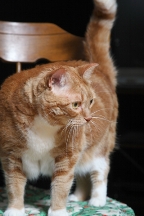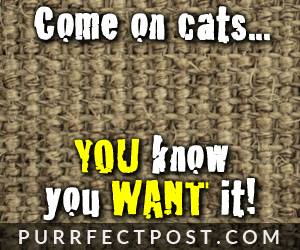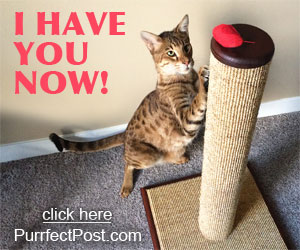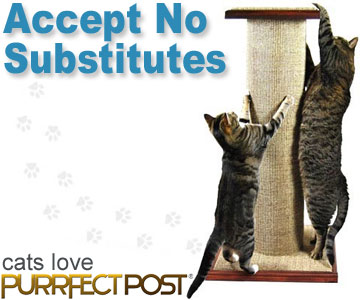Obesity in Cats: Overview of Dangers and Solutions

Obesity in our pets has reached epidemic proportions, mirroring that of the human population. Overweight cats are at higher risk of developing certain diseases, internally and externally. Some of these diseases are similar to those in humans, but some are unique to felines.
Health Conditions in Obese Cats
Like humans and dogs, obese cats are at a higher risk for developing diabetes, which leads to high blood sugar (hyperglycemia) and sugar in the urine (glucosuria). diabetic felines benefit from insulin therapy, dietary management, and weight loss. Weight loss helps insulin to be more effective. Indeed, for some cats, diabetes may resolve with resolution of the obesity.
Overweight cats may have difficulty grooming. Excessively deep skin folds stay warm and moist, often leading to poor condition of their skin and coat.
As cats develop fat pads and pouches externally, fat is also being deposited internally. These fat deposits compress adjacent organs and may affect their function. Fat in the chest cavity can affect the lungs and heart; fat in the abdominal cavity can affect the intestines, leading to constipation. Extra weight can also exacerbate arthritis symptoms by putting extra stress on joints.
A potentially life-threatening condition unique to overweight cats is hepatic lipidosis, or fatty liver. When, for whatever reason, these cats experience a reduced appetite or become anorexic, the body tries to use their plentiful supply of stored fats as an energy source. These fats are brought to the liver, which then couples them to protein to transport them throughout the body. However, if the cat is not eating, the protein levels are limited and this excessive fat is then trapped in the liver. This leads to liver destruction and potential liver failure and is a very serious disease. Intensive treatment at a veterinary hospital can be successful if the condition is caught early. The mainstay of treatment is providing high-protein food so the liver can rid itself of fat. This may require a feeding tube if the cat is not eating on his or her own.
Weight Loss for Obese Cats
A weight loss plan for an overweight cat should be undertaken with the assistance of a veterinarian. The goal weight should first be established, based on a body condition scoring chart. The weight loss should be gradual to minimize the risk of hepatic lipidosis and may take a few months. Your veterinarian may recommend a prescription reduced calorie diet to allow safe weight loss while maintaining optimal nutrition and satiety (satisfied appetite) for the cat. Recent studies have shown that a high-protein, low-carbohydrate "catkins" diet is most beneficial for regulating blood sugar levels in cats and may be the safest, most effective way to lose weight.
Just as in humans, any weight loss plan needs to include exercise. Daily interactive play, using a variety of chase and wand toys, is a great way to provide entertainment, cat-human bonding, and exercise for your cat. There are also hollow feeding balls, which dispense kibble as reward for the cat batting it around. This is a great way for an overweight cat to work for his or her food.
Weight loss in cats takes effort. However, the risks of being overweight are many, and keeping your cat at his or her ideal weight will help minimize these risks, leading to a longer and healthier life.
You May Also Like These Articles:
Fatty Liver Disease in Cats (Hepatic Lipidosis)
Interactive Playing with Wand Toys
Quiz - Do You Know How to Choose a Cat Scratching Post?
Hands-On Guide to Checking if Your Cat Is at a Good Weight
Cat Weight Loss: How You Can Help Your Cat Lose Weight
Notice: Ask-a-Vet is an affiliated service for those who wish to speak with a veterinary professional about their pet's specific condition. Initially, a bot will ask questions to determine the general nature of your concern. Then, you will be transferred to a human. There is a charge for the service if you choose to connect to a veterinarian. Ask-a-Vet is not manned by the staff or owners of CatHealth.com, and the advice given should not delay or replace a visit to your veterinarian.





